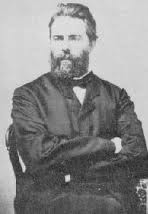Is That It, Then?
But the path of our lives and the place we are born were not choices; they were the luck of the cosmic draw. And thus our attitude to all this is formed by the environment we grow up in. To paraphrase Martin Luther King, I had a dream. A selfish dream, a privileged dream. When I was ten years old I knew that one day, come what may, I would be a writer. I’d wanted to be a scientist, but the gene required at birth which allows mathematics to function in the brain was flushed away with the umbilical cord. I wanted to be a spaceman, but even today flying terrifies me. I wanted to be a sailor, and I fulfilled that wish between 1959-66. Then came the years when I began to write, and here I am, almost half a century on, aged 70, still forlornly tapping away for eight hours a day.
SO YOU WANT TO BE A WRITER?
If you manage to write a book and get published, then you’ll never repeat the absolute thrill of holding that first bound copy of your work in your moist hands. Yet unless you are of a purely academic background, with a true grasp of classical grammar and an understanding of what, for example, the term ‘literary fiction’ means, then your writing life will be a struggle. It’s the struggle to express oneself. You read the greats; Hemingway, Dickens, Hardy, and then look back at your own output and think; “How did they do that? Why can’t I write descriptive narrative which swells the emotions and ends up as quotable?” Because by the time you’ve got past writing your second book, you might be ‘living the dream’ (minus the money) yet all your literary inadequacy floats to the surface like scum in a coalminer’s bath.
In addition to some journalism, commercial work, music and CD writing, a bit of radio and TV, I have written 16 books, 13 of which have been published. I have, by these efforts, got myself indelibly branded as a ‘jobbing writer’. In fact, that means that I’ll never be taken seriously because I make that classic mistake that many Sunday League scribes make; I imagine that the things which interest me will interest the public. You can think that you’re an intellectual of sorts - hell, I even read the Guardian and the Observer at weekends, yet there are areas of publishing which remain as densely indecipherable as quantum physics. For example - what kind of books and what kind of authors are chosen for nomination into the Whitbread or Booker Prizes? How do poets survive? Why do so many appalling screenplays get made into equally appalling movies? And why, when you send the BBC a script for a radio play, does no-one read it?
At the other end of the intellectual spectrum, I hear of writers like Dan Brown making around £20 million per annum. I know I’m a better writer than him, but he’s found those things which fascinate him as much as they do the public. Nice one, Dan.
So here’s the current state of play with this particular morose, self-pitying bastard. My latest work, The Mammoth Book of Unexplained Phenomena (Constable & Robinson, London, 2013) came out on January 17 in the UK and on April 8 in the USA. It had a brilliant full page review in one magazine, and some four star reviews on Amazon and other web sites. Few, if any of my books have ever made money beyond their advance, other than A Brief History of 1917, which netted a couple of hundred quid in royalties. I had hoped that Phenomena, which is to the world of Whitbread and Booker what Pot Noodle is to Venison, might at least give me a little lift. Until, that is, on May 3rd when I was wandering around that shop full of knock-down cheap books, The Works. There, stacked high on the shop’s shelves was my latest work, selling as a remainder at £2.99, or, £5 for 2. And it’s only been out for 15 weeks. So, if you want to be a writer, prepare for bitter disappointment, and forget all those glorious stories about JK Rowling, Stephen King and 50 Shades of Shite. Unless you know what makes publishing work, unless you know ‘the right people’, and unless you can steam ahead and not spend valuable time pouring your heart out to all and sundry in pieces such as this, then learn to play the banjo instead. You’ll at least get some sense of achievement.

THE MELVILLE FACTOR
I’ll carry on writing. That’s what I do. In fact I’m 700 pages into a massive novel which few people will ever see, I suppose. And no matter what anyone asks me to write, providing they’re willing to pay me, I’ll do it. Only one hope remains - it’s what I call the Melville Factor. Moby Dick was an abject publishing turkey when it came out, selling just a few hundred copies. Melville spent the last barren decades of his life working for the US Customs Office, forgotten by everyone. His obituary in the New York Times was just two lines. Thirty years later, a few notable writers realised that Moby Dick was the greatest American Novel ever. Now, I’m not by any stretch of the imagination comparing myself to a genius such as Melville. All I can hope for is that circa 2050, someone ‘in the know’ might pick up one of my tomes and mutter …
“Hey -this guy wasn’t at all bad…”